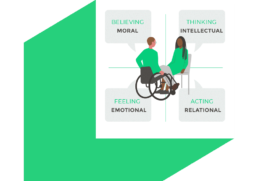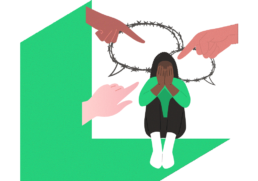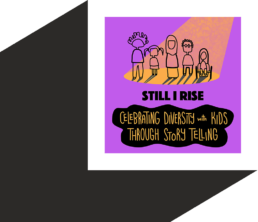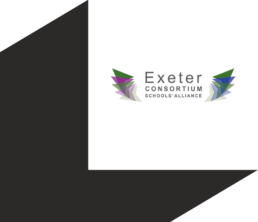Our Leading the Diverse Curriculum Training
Our Leading the Diverse Curriculum Training
Our Leading the Diverse Curriculum Training
Our Training Offer
We support teachers, curriculum/ subject/ phase leaders, and senior leaders responsible for curriculum design to diversify the curriculum in your school.
We deliver individual workshops and talks – virtually and face to face – but due to demand we are now launching a programme of curated sessions to support you on your journey to make your curriculum more inclusive and more representative.
This programme will support you in raising consciousness, developing confidence and building competence in how to diversify your curriculum design, delivery and resources.
Our 6-part programme will support you throughout an academic year, through a half-termly virtual session.
The programme content is detailed below:
Session 1: Curriculum Vision
To be able to rationalise and clarify the direction of diversity in the curriculum work to ensure that there is shared vision and unified purpose in schools.
Session 2: Curriculum Thinking
To ensure that the curriculum work is rooted in sound curriculum principles that align with a school’s vision, mission and values.
Intersessional Activity 1:
Review your curriculum policy and your subject’s curriculum intent statement through the lens of the 9 protected characteristics and through the lens of your school’s values.
Session 3: Curriculum Evaluation
To explore practical mechanisms for curriculum evaluation, considering change models and implementation strategies.
Session 4: Curriculum Adaptation
To explore methods of adapting the curriculum to ensure that it is meaningfully diverse within a social justice framework.
Intersessional Activity 2:
Review your curriculum across subjects in light of the previous two sessions and identify strengths and areas for development to feed into an implementation plan for adaptation of the curriculum.
Session 5: Curriculum Conversations
To create safe spaces in which to authentically activate student and parent voice to gauge how the curriculum is received.
Session 6: Curriculum Controversies
To explore ‘controversies’ in creating a diverse curriculum to be able to manage the emotional wake of the work.
Intersessional Activity 3:
Create a 1 page/ 500 word report summarising how you have applied your learning and evaluating the impact from these sessions to demonstrate how you are leading the diverse curriculum in your context.
- Inspiring Futures Through Learning
- Summit Learning Trust
Bennie provided an outstanding start to our year, giving our staff a myriad of ideas and concepts which they can use on the long journey to a more diverse curriculum. She was highly knowledgeable, but also wore her expertise with a humility and practicality that made staff believe that they could make real progress.
Heath Monk, CEO, British School in the Netherlands
Our Inclusive Workplaces Training
Our Inclusive Workplaces Training
Our Inclusive Workplaces Training
Our Training Offer
We support schools and trusts in reflecting on how truly inclusive they are as workplaces.
We deliver individual workshops and talks – virtually and face to face – but due to demand we are now launching a programme of curated sessions to support you on your journey to make your school a more inclusive workplace for all of your employees.
This programme will support you in raising consciousness, developing confidence and building competence in how to review policies, practices and processes to ensure that inclusion is at the core of your employer’s promise to your staff.
- Becoming a culturally-intelligent school
- Becoming a life-friendly school
- Becoming a menopause aware school
- Becoming an anti-racist school
- Becoming a disability aware school
- Becoming a trans-inclusive school
- OTSA
- Summit Learning Trust
A safe space was created for staff to share. Great starting point for our DEI journey as a school.
Clare Pellew, Deputy Headteacher
Our Holding Courageous Conversations Training

Our Holding Courageous Conversations Training
Our Holding Courageous Conversations Training
Our Training Offer
We support schools in empowering their staff to be empowered to have courageous conversations in the workplace.
What is a Courageous Conversation?
In courageous conversations, whether in the context of performance appraisal, mentoring, or coaching, individuals are encouraged to express their views openly and truthfully, rather than defensively or with the purpose of laying blame. Integral to courageous conversations is an openness to learn.
What is an example of a Courageous Conversation
Typical examples include handling conflict, confronting a colleague, expressing an unpopular idea on a team, asking for a favour, saying no to a request for a favour, asking for a raise, or trying to have a conversation with someone who is avoiding you. Research shows that many women find such “courageous conversations” challenging.
What to Expect
Expect to be challenged in a safe and supportive way as we navigate how to set up and hold the conversations that we avoid. We will unpack the themes of authenticity, vulnerability and courage, considering what this means for our leadership style.
What You Will Learn
We will raise our consciousness, increase our confidence and develop our competence in how we show up as leaders. We will develop deep listening skills, we will explore difficult topics, and we will practise the art of simultaneously caring and challenging others.
What You Will Gain
You will develop new skills. You will establish critical friends. You will be more confident in tackling those courageous conversations with your colleagues.
We can deliver face to face and virtually, for HR conferences, trust training events and individual teams.
- Creating the container - how to create the conditions for a courageous conversation
- Building psychological safety - how to establish the ground rules and build trust
- Embracing vulnerability - how to balance emotional honesty and model emotional intelligence
- Balancing care and challenge - how to activate radical candor and fierce conversations balancing accountability with empathy
- Handling emotional wake - how to hold space for others
- Dollar Academy
- Elliot Learning Foundation
- Hearts Academy Trust
- Summit Learning Trust
Excellent interaction with the audience. Engaging talk- kept the audience engaged throughout. Reinforced the messages we feel are key for our community.
Jennie Simmonite, Deputy Head of Sixth Form
I would highly recommend this training to you if you are keen to move beyond a superficial understanding of DEI and how it relates to the way you lead. By maintaining an emphasis on doing the inner ‘work’ first, this training helps us avoid the temptation of leaping to quick, ineffective solutions while paying attention to what really matters in the way we lead and learn together.
Esther Stevenson, BLA Programme Leader
Thanks to Hannah for the thought-provoking session on Courageous Conversations. Hannah was exceptionally knowledgeable, bringing not only a deep understanding of the subject but also a wealth of practical insights that made the sessions engaging and impactful. The discussions in this session were thought-provoking, pushing us to reflect on our own practices and assumptions. Hannah’s recommended reading list and toolkit were incredibly helpful, providing us with valuable resources to continue our learning and growth beyond the session. I highly recommend this training to anyone seeking to improve their ability to navigate difficult conversations and create more inclusive spaces.
Emily De Grove, Deputy Headteacher
Our ECT Training
Our ECT Training
Our ECT Training
Our Training Offer
We support a number of ECF providers and teaching school hubs with their DEI provision and strategy to support their ECTs in Year 1 and 2 of their induction into the profession.
We organise conferences, hold virtual events, deliver talks and curate webinar series to explore key themes around diversity, equity and inclusion.
We facilitate core DEI training for whole training cohorts, of primary and secondary ECTs, for them, their mentors, and the team from the provider.
- Developing an understanding of key DEI concepts and language
- Reflecting on our own identities and lived experience
- Exploring our power, privilege and blind spots
- Preparing for courageous conversations
- Creating inclusive learning environments
- Representing diverse role models in our curriculum
- Bright Futures Alliance for Learning
- Chiltern Learning Trust
- OTSA
We found the training incredibly powerful and insightful. Hannah is so knowledgeable and skilled at delivering the content in an engaging way. It challenged us and encouraged us to reflect on our own beliefs and behaviours in a safe space. With the support Hannah and Diverse Educators have given us, I feel motivated and inspired to continue doing this incredible DEI work in our school.
Elizabeth McCulloch, Head of Diversity, Equity and Inclusion
The virtual DEI conference from #DiverseEd is an integral and highly valued part of our training offer for ECTs. The opportunity for the ECTs in our region to engage with such a wealth of DEI expertise and guidance, at the start of their career, is invaluable. We would highly recommend this event to all training providers in ensuring ECTs are expertly guided in creating inclusive classrooms and approaches.
Karen Taylor-Paul, Director of Alban Teaching School Hub
Chiltern Teaching School Hub are proud to partner with Diverse Educators. The impact on our ECTs and trainee teachers from attending sessions and conferences with Diverse Educators has been reflected in their classroom practice and wider professional commitment. The sessions are engaging, inspiring and highlight the importance of protected characteristics for supporting and raising attainment for students as well as networks and CPD for our teachers.
Cheryl Abbiss, Deputy Director of Chiltern Teaching School Hub
Courageous Conversations Toolkit

Courageous Conversations Toolkit
Courageous Conversations Toolkit
Toolkit collated by Hannah Wilson
What is a Courageous Conversation?
In courageous conversations, whether in the context of performance appraisal, mentoring, or coaching, individuals are encouraged to express their views openly and truthfully, rather than defensively or with the purpose of laying blame. Integral to courageous conversations is an openness to learn.
What Is an Example of a Courageous Conversation?
Typical examples include handling conflict, confronting a colleague, expressing an unpopular idea on a team, asking for a favour, saying no to a request for a favour, asking for a raise, or trying to have a conversation with someone who is avoiding you. Research shows that many women find such “courageous conversations” challenging.
How Do You Frame a Courageous Conversation?
- Set your intentions clearly.
- Create a container.
- Prepare facilitators & groups.
- Set it up.
- Open with vulnerability.
- Have the discussion.
- Come back together and close.
- Support each other.
What Does the Research Tell Us About Courageous Conversations?
According to the work of Susan Scott there are The Seven Principles of Fierce Conversations:
- Master the courage to interrogate reality. Are your assumptions valid? Has anything changed? What is now required of you? Of others?
- Come out from behind yourself into the conversation and make it real. When the conversation is real, change can occur before the conversation is over.
- Be here, prepared to be nowhere else. Speak and listen as if this is the most important conversation you will ever have with this person.
- Tackle your toughest challenge today. Identify and then confront the real obstacles in your path. Confrontation should be a search for the truth. Healthy relationships include both confrontation and appreciation.
- Obey your instincts. During each conversation, listen for more than content. Listen for emotion and intent as well. Act on your instincts rather than passing them over for fear that you could be wrong or that you might offend.
- Take responsibility for your emotional wake. For a leader there is no trivial comment. The conversation is not about the relationship; the conversation is the relationship. Learning to deliver the message without the load allows you to speak with clarity, conviction, and compassion.
- Let silence do the heavy lifting. Talk with people, not at them. Memorable conversations include breathing space. Slow down the conversation so that insight can occur in the space between words.
The Diverse Educators’ Courageous Conversations Toolkit
- What does having a Courageous Conversation mean to you?
- How psychologically safe do you feel in your organisation and how might this impact your ability to have Courageous Conversations?
- How secure is your sense of belonging in your organisation, and how might this impact your ability to have Courageous Conversations?
- How often do you listen to learn and understand, not to interject?
- If you avoid having Courageous Conversations, how does this cause bigger problems for you?
- What are the ideal conditions for holding a Courageous Conversation?
Articles
Blogs
Books
Bourgeois, Trudy. Equality: Courageous Conversations About Women, Men, and Race to Spark a Diversity and Inclusion Breakthrough
Brown, Brene. Daring Greatly: How the Courage to Be Vulnerable Transforms the Way We Live, Love, Parent, and Lead
Conner, Yana. Ducksworth, Chantelle. Fields, Lisa. Courageous Conversations: The Tools You Need For the Conversations in the Culture
Grenny, Joseph. Patterson, Kerry. McMillan, Ron. Crucial Conversations: Tools for Talking When Stakes are High
Hines, William and Carolyn. What to Say and How to Say It: 72 Courageous Conversations for the Workplace
Scott, Kim. Radical Candor: Fully Revised and Updated Edition: How to Get What You Want by Saying What You Mean
Scott, Susan. Fierce Conversations: Achieving success in work and in life, one conversation at a time
Scott, Susan. Fierce Leadership: A bold alternative to the worst 'best practices' of business today
Singleton, Glen. Courageous Conversations About Race A Field Guide for Achieving Equity in Schools and Beyond
Podcasts
Resources
Videos
Microaggressions Toolkit

Microaggressions Toolkit
Microaggressions Toolkit
Toolkit collated by Mandy Preville-Findlay
What Are Microaggressions?
The Merriam-Webster online dictionary defines microaggression as:
“A comment or action that subtly and often unconsciously or unintentionally expresses a prejudiced attitude toward a member of a marginalised group (such as a racial minority)”.
The American National Institutes for Health states:
“Microaggressions are everyday verbal, nonverbal, and environmental slights, snubs, or insults – whether intentional or unintentional – that communicate hostile, derogatory, or negative messages to individuals based solely upon their marginalised group membership. Microaggressions repeat or affirm stereotypes about a minority group, and they tend to minimize the existence of discrimination or bias, intentional or not”.
- Microinsults (usually unconscious, and convey rudeness/insensitivity)
- Microassaults (often conscious, and are deliberately and derogatory)
- Microinvalidations (usually unconscious, and exclude the thoughts, feelings, or experiences of a minority group).
References:
US Department of Health and Human Studies – Microaggressions.
Racial Microaggressions in Everyday Life – Types and Impact of Microaggressions.
The Diverse Educators’ Microaggressions Toolkit
- What is meant by the term microaggressions?
- What are my preconceptions about microaggressions and who they affect?
- What are the differences between types of microaggressions?
- Why do we need to be aware of what microaggressions are and who they affect?
- Why is it important for microaggressions to be called out and challenged by everyone, not just those directly affected?
How to Counter Microaggressions
Dealing with Microaggressions can be time consuming and tiring if they are continually encountered. Microaggressions by their very nature may not be intentionally perpetrated. Therefore, allowing them to go unchallenged may lead to unintended negative learning and contribute to many feeling unwelcomed. For example, deciding where a person lives or works based on their appearance.
- Challenge the action or words - let the individual know how you feel or are impacted by their actions or words.
- Record the occurrences - a pattern of behaviour can be established by tracking over a period of time. This becomes important if you need to take things further, later down the line.
- Take it to management - let someone in authority know what is occurring or take it to your Trade Union if you are a member.
Articles
Blogs
Books
Podcasts
Resources
Videos
Our Middle Leaders' Training
Our Middle Leaders' Training
Our Middle Leaders' Training
Our Training Offer
We support middle leaders in primary and secondary, in state and independent, in the UK and internationally in developing their leadership around DEI through their roles and their teams.
We can deliver face to face and virtually, for leadership development days, meetings and twilights.
We raise consciousness, develop confidence and build competence in DEI being everyone’s responsibility, no matter what the role and remit we hold.
- Developing an understanding of key DEI concepts and language
- Reflecting on our own identities and lived experience
- Exploring our individual and collective power, privilege and blind spots
- Translating our DEI commitment through curriculum and pastoral intent
- Understanding how to support a diverse team
- Developing inclusive leadership behaviours
- Holding courageous conversations
- Building DEI into the action plan for the team/ department/ subject
- AET
- Christchurch Primary School
- Haringey Learning Partnership
- Highgate School
- Hillbrook Primary School
- NEU
- Summit Learning Trust
- Villiers School
Training with Hannah is always a pleasure. She is really good at giving you the information and allowing you to make your own observations. The training on diversity was incredibly informative and has given me some clear ways of how to move forward within my setting.
Jodie O'Neill, Phase Leader, Christchurch Primary School
Our Student Sessions
Our Student Sessions
Our Student Sessions
Our Training Offer
We support schools and colleges (primary and secondary, in state and independent, in the UK and internationally) in creating space to hold conversations about DEI with their students.
We can deliver face to face and virtually, for PSHE lessons, assemblies and drop down days.
We raise consciousness, develop confidence and build competence in DEI being everyone’s responsibility, in all stakeholder groups.
- Exploring our own identity and belief systems
- Understanding levels of belonging
- Developing inclusive behaviour
- Becoming upstanders, not bystanders
- Finding our voices to speak out
- Having courageous conversations
- Christ’s Hospital School
- Dr Challoner’s Girls’ School
- Langley Girls’ School
- Latymer Upper School
- Westonbirt School
- West Buckland School
I have had pretty much universal positive feedback from the students (which is rare for a lecture that all students have to attend!) and I found your advice about enormously talented girls who “deselect themselves” so very useful (and sadly very resonant!)
Andy Bird, Assistant Headteacher, Dr Challoner's Girls' School
Still I Rise

Still I Rise
Still I Rise Diversity Storytelling was founded in 2019 to read books together and recommend our favourite titles from all over the world.
Our mission is to create trusted spaces where we can celebrate all people to encourage tolerance, acceptance and move with open hearts and minds to create a more loving world.
We offer story sessions, workshops and training for adults, children and young people to learn through stories that offer representation and explore themes including Emotional Well-Being, Celebrating Differences, Empathy & Changing Country ,Love Is Love, Stories in Sign, Neuro Diversity, Eco Warriors, Black Lives Matter and Kind Words, Inclusive Language and more!
Exeter Consortium Schools' Alliance

Exeter Consortium Schools' Alliance
Exeter Consortium Schools’ Alliance is an engaged, diverse and vibrant network of schools across the South West, striving to improve the quality of learning for our pupils.
Working in partnership with South West Teacher Training and the University of Exeter, both highly regarded by OFSTED, we train the next generation of teachers and provide a comprehensive programme of professional development aimed at improving the quality of teaching and learning.
We provide challenge and support to each other to improve our schools and organise supply teachers and teaching assistants through Exeter Supply Partnership.
Please see our website below for further information about our teacher training programmes, our CPD programme and our Primary teacher supply service.
We organise an Equality & Diversity Professional Community and would like to develop our school CPD programme further to address other areas of Diversity, Equity and Inclusion. We are exploring working with organisations such as yours to develop CPD in this area. We have also set up a working group with schools and trainees to ensure we support people to enter the profession if they are from minority groups and also to support them once training/teaching. We are Committed to equality for all.

